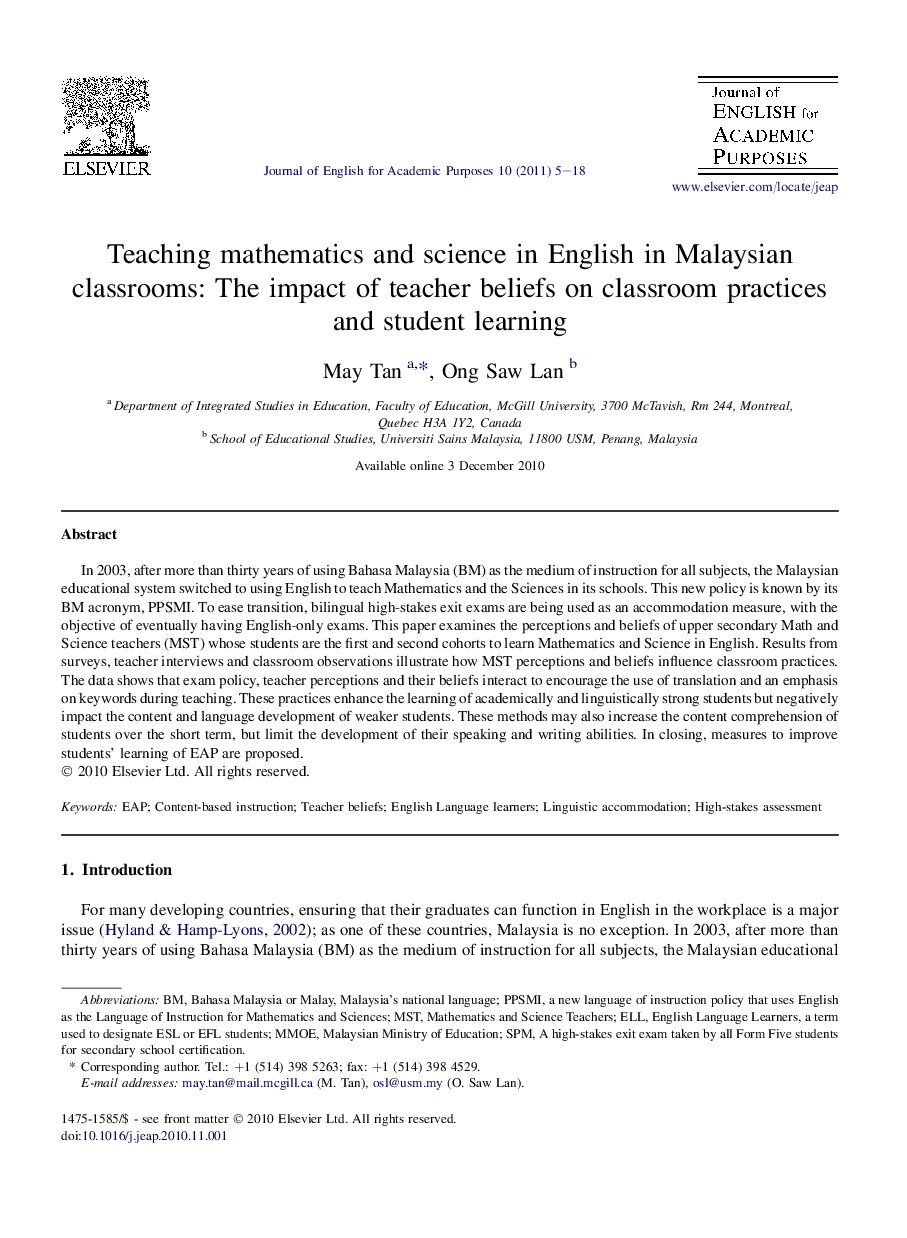| Article ID | Journal | Published Year | Pages | File Type |
|---|---|---|---|---|
| 360418 | Journal of English for Academic Purposes | 2011 | 14 Pages |
In 2003, after more than thirty years of using Bahasa Malaysia (BM) as the medium of instruction for all subjects, the Malaysian educational system switched to using English to teach Mathematics and the Sciences in its schools. This new policy is known by its BM acronym, PPSMI. To ease transition, bilingual high-stakes exit exams are being used as an accommodation measure, with the objective of eventually having English-only exams. This paper examines the perceptions and beliefs of upper secondary Math and Science teachers (MST) whose students are the first and second cohorts to learn Mathematics and Science in English. Results from surveys, teacher interviews and classroom observations illustrate how MST perceptions and beliefs influence classroom practices. The data shows that exam policy, teacher perceptions and their beliefs interact to encourage the use of translation and an emphasis on keywords during teaching. These practices enhance the learning of academically and linguistically strong students but negatively impact the content and language development of weaker students. These methods may also increase the content comprehension of students over the short term, but limit the development of their speaking and writing abilities. In closing, measures to improve students’ learning of EAP are proposed.
Research highlights► We examine the Malaysian EAP context created by a new language of instruction policy. ► In Malaysia, teachers and students are both ELLs. ► Teacher beliefs and students' linguistic abilities impact teaching practices. ► The school's geographic location is also an important factor. ► Teachers need to be educated on the role of language in content learning.
